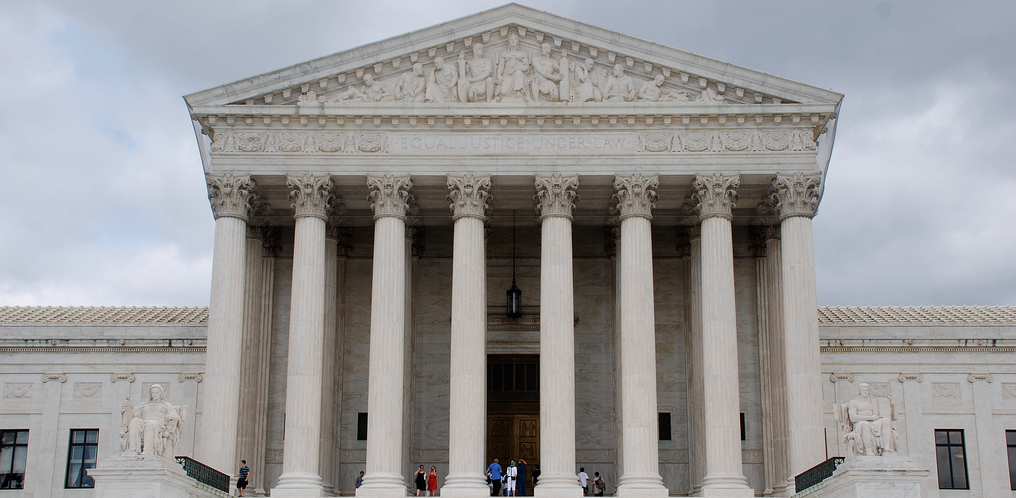Supreme Court Once Again Shows Its Disdain For Consumer Rights

(afagen)
As we’ve explained a number of times in recent years, arbitration clauses — found in everything from cellphone contracts to cable bills to checking account disclosures — generally work in two ways.
First, they compel customers to give up their right to settle a legal dispute in court by forcing them into a binding arbitration process, often with an arbitrator selected by — and familiar with — the company that would have been sued.
Second — and this is where companies can really get away with illegal behavior — arbitration clauses often prohibit wronged customers from joining together to have their disputes heard a single class action.
This means that every single customer would have to file an arbitration claim against the company. Compare that to a class action lawsuit, where only a small number of wronged customers need to prove that there is a larger, definable group of similar victims.
Arbitration rulings often come with strict caps on damages, meaning few attorneys are willing to take on a case that will probably cost them more to put on than they might earn.
Way back in 2007, courts in California had routinely held that such bans on class actions were unconscionable. So while a number of companies were using arbitration clauses at the time, some — like DirecTV — had a condition in their terms which voided the entire arbitration clause “if the law of your state” did not permit agreements barring class actions.
But then came 2011, when SCOTUS sided with AT&T against a California wireless customer in the landmark Concepcion case. That ruling held that bans on class actions were just fine because the Federal Arbitration Act pre-empted California courts’ interpretation of arbitration clauses.
The case in today’s pro-arbitration ruling involves a pair of DirecTV customers in California who sued in 2008, alleging that the satellite company’s early termination fees violated state consumer protection laws.
Even though DirecTV had the “law of your state” waiver for its arbitration clause, the company asked the court to force the matter into arbitration.
In writing for the 6-3 majority, Justice Breyer acknowledges [PDF] that California legal precedent had indeed previous deemed class-action prohibitions unconscionable, but that the 2011 Concepcion SCOTUS ruling — to which Breyer dissented, oddly enough — determined that this state-level precedent was “an obstacle to the accomplishment and execution of the full purposes and objectives of Congress” in drafting the Federal Arbitration Act.
Even after Concepcion, the California Court of Appeal ruled that “the law of California would find the class action waiver unenforceable,” and pointed to state-level measures that they claimed invalidated the clause.
But Breyer says that this doesn’t do anything to change the fact that the federal law trumps any state-level rules.
“Lower court judges are certainly free to note their disagreement with a decision of this Court,” writes Breyer, noting that the Supremacy Clause “forbids state courts to dissociate themselves from federal law because of disagreement with its content or a refusal to recognize the superior authority of its source… The Federal Arbitration Act is a law of the United States, and Concepcion is an authoritative interpretation of that Act. Consequently, the judges of every State must follow it.”
But things weren’t so cut-and-dry for the dissenting justices.
“I remain of the view that the Federal Arbitration Act does not apply to proceedings in state courts,” writes Justice Thomas in a solitary, one-paragraph dissent.
A much longer rejoinder came from Justice Ginsburg, who was joined in her dissent by Justice Sotomayor, and who urged her fellow justices to “take no further step to disarm consumers, leaving them without effective access to justice.”
The SCOTUS majority held that the California Court of Appeal’s interpretation of the language in the DirecTV agreement was so unreasonable that it may be discriminatory to arbitration, in violation of the Federal Arbitration Act.
“As I see it,” writes Ginsburg, “the California court’s interpretation of the ‘law of your state’ provision is not only reasonable, it is entirely right.”
She points out that arbitration is supposed to be a a matter of “consent, not coercion,” but DirecTV customers had no say in their acceptance of this clause. They either take it or they don’t have access to the service.
“Historically, this Court has respected state-court interpretations of arbitration agreements,” notes the dissent, pointing that that, in the last 25 years, “not once has this Court reversed a state-court decision on the ground that the state court misapplied state contract law when it determined the meaning of a term in a particular arbitration agreement. Today’s decision is a dangerous first.”
Ginsburg contends that the SCOTUS majority is misinterpreting its own ruling in Concepcion. According to her view, that ruling only means that a state can’t compel a company to go to court instead of arbitration. But when DirecTV included the “law of your state” waiver, it was acknowledging that some state laws may trump the Federal Arbitration Act.
“If DirecTV meant to exclude the application of California legislation, it surely chose a bizarre way to accomplish that result,” writes Ginsburg, who says the majority has “misread” the Arbitration Act to “deprive consumers of effective relief against powerful economic entities that write no-class-action arbitration clauses into their form contracts.”
Want more consumer news? Visit our parent organization, Consumer Reports, for the latest on scams, recalls, and other consumer issues.

